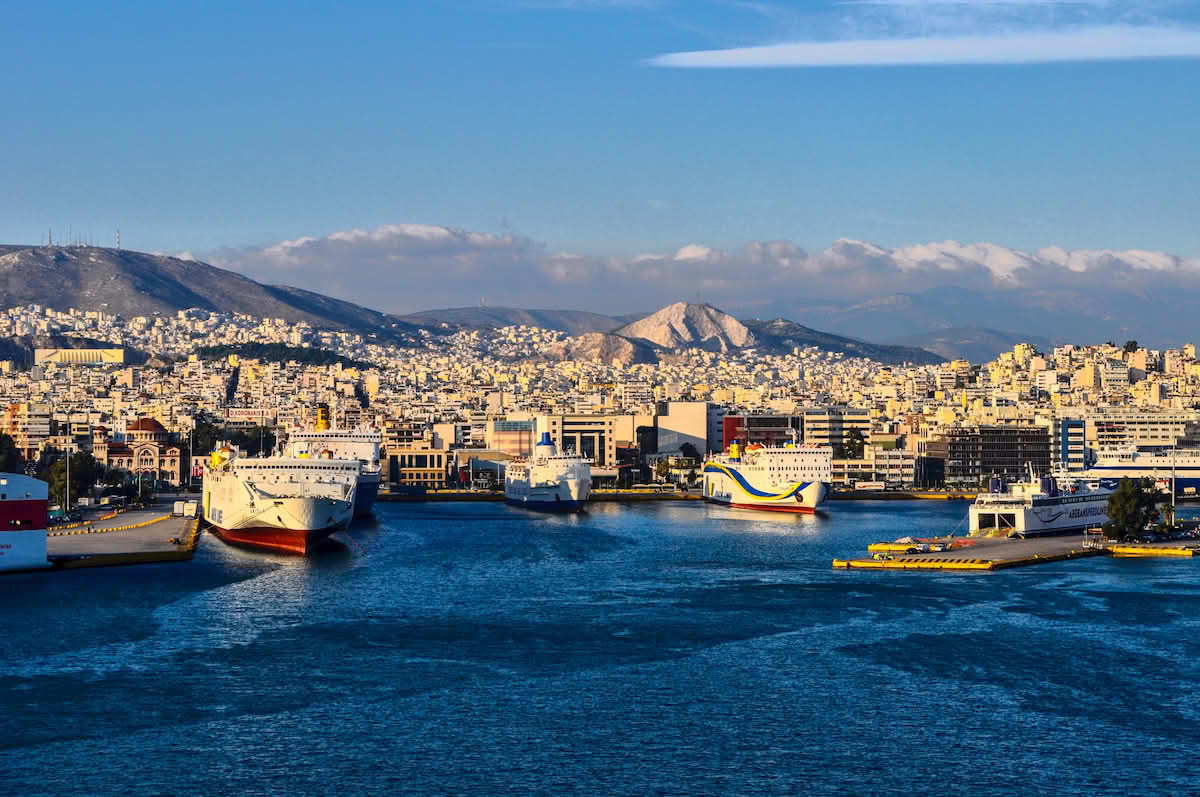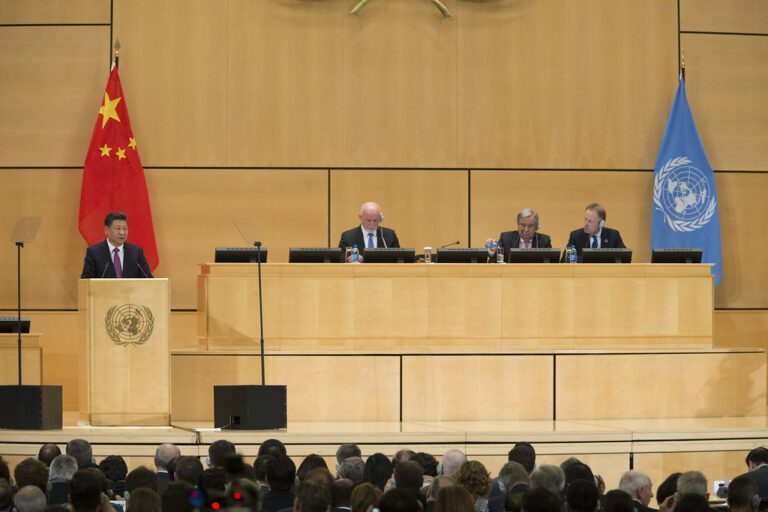
This article is based on the final thesis of the General Diplomatic Training Program at the Ministry of Foreign Affairs of the Czech Republic, titled “From Belgrade to Piraeus: China’s Strategy in Southeast Europe.”
Over the past two decades, China has evolved from a regional powerhouse into a global actor. Europe – and Southeast Europe in particular – has become a key arena for Beijing’s ambitions. The region serves not only as a commercial gateway to the European Union but also as a stage where Chinese investments, political engagement, and public diplomacy converge. Among the countries of Southeast Europe, Greece stands out. Its strategic location, EU membership, and financial vulnerability during the debt crisis made it a testing ground for Beijing’s long-term strategy.
This article examines China-Greece relations, focusing on the Port of Piraeus – the flagship project of China’s Belt and Road Initiative (BRI) in Europe – and offers a brief comparison with Serbia to highlight the contrasting nature of Chinese investments and the differing public perceptions they generate.
China-Greece Relations: An Overview
China and Greece formalized a Comprehensive Strategic Partnership in 2006, laying the groundwork for intensified cooperation in trade, infrastructure, and maritime transport. Symbolism has also played a role: both sides frequently invoke their “ancient civilizations” as a cultural bridge. Yet the primary driver has been economic necessity. The relationship remained strong in 2024, with bilateral trade reaching roughly €12.6 billion, and Greece continuing to present China as a reliable partner – not only in infrastructure but also in emerging areas such as green technology and the digital economy.
For Beijing, Greece provided an entry point into the European market. For Athens, Chinese investment during the austerity years provided a much-needed economic lifeline. Over the past 15 years, Chinese companies have invested more than €10 billion, primarily in shipping, energy, telecommunications, and real estate. Beijing has also supported Greek shipowners, who transport a significant share of Chinese exports, while thousands of Chinese citizens have entered Greece through the Golden Visa program.
Politically, Greece’s approach has fluctuated. During the crisis years, Chinese investments were warmly received. Under Prime Minister Alexis Tsipras, Athens even blocked an EU statement critical of Beijing at the UN in 2017. Later governments adjusted course: Prime Minister Kyriakos Mitsotakis strengthened ties with the EU and the United States, restricted Huawei’s role in the 5G rollout, and adopted a more cautious stance. Nonetheless, Greece continues to present itself as a bridge between East and West – open to Chinese investment, but within European strategic boundaries.
Public opinion reflects this ambivalence. According to 2024 Pew Research data, nearly half of Greeks view China positively, while a similar share remains skeptical. Trust in President Xi Jinping is low, and concerns persist about overreliance on Chinese capital. Unlike in Serbia, the Greek government does not heavily politicize Chinese projects, leaving public attitudes more divided.
Piraeus: China’s Flagship in Europe
The Port of Piraeus epitomizes both the opportunities and limits of Chinese investment in the EU. In 2008, China’s state-owned shipping giant COSCO secured a concession to operate two of the port’s three terminals. In 2016, it acquired a majority stake in the Piraeus Port Authority for €1.5 billion, pledging a further €550 million in investments to modernize the port and transform it into a logistics hub for Europe.
The results are significant: Piraeus has become one of the busiest ports in the Mediterranean and a critical hub for Chinese goods entering Europe. Employment has increased, container throughput has multiplied, and Athens has gained international visibility as a maritime hub. Chinese shipping and Greek shipowners remain closely intertwined, reinforcing the economic partnership.
However, the project also reveals constraints and controversies. Expansion into adjacent sectors, such as rail transport, has stalled due to EU competition rules. COSCO has faced opposition from local unions and residents concerned about labor rights, environmental damage, and limited local economic spillover. Critics argue that while the port thrives as a transit point, Greece has not fully captured added value from logistics and processing activities. Piraeus thus stands as both a success story and a cautionary tale – evidence that Chinese firms can modernize strategic infrastructure, but also a reminder that EU regulations and local resistance can curb Beijing’s ambitions.
Comparing Serbia and Greece: Loans vs. Equity, Rhetoric vs. Substance
Serbia offers a sharp contrast. Unlike Greece, Serbia lies outside the EU and faces fewer regulatory constraints. This has allowed China to secure large-scale projects through loans and state-to-state agreements. Bridges, power plants, and railway modernizations have all been financed with Chinese credit, often lacking transparency.
Politically, Serbian leaders – particularly President Aleksandar Vučić – portray China as a strategic ally. The rhetoric of “steel friendship” dominates official discourse, with Chinese investments celebrated as proof of Serbia’s importance. Public opinion reflects this narrative: China is consistently among Serbia’s most trusted foreign partners, sometimes even surpassing the EU in popularity. Yet much of this enthusiasm rests on misconceptions. Citizens often mistake loans for direct investments, believing that Beijing is “rescuing” Serbia’s economy.
Greece presents the inverse picture. Here, Chinese engagement is more substantive, centered on equity investments such as COSCO’s stake in Piraeus and renewable energy ventures. These projects deliver real modernization and value. However, because Greek authorities and media do not politicize them to the same extent as Belgrade, public enthusiasm remains muted. Rather than unconditional approval, the debate in Greece is more nuanced – reflecting a pluralistic political environment and stronger EU oversight.
Implications for the EU: Economic Lessons
From Belgrade to Piraeus, China’s presence in Southeast Europe is real but highly context specific. In Serbia, limited oversight and centralized politics allow Beijing’s loan-driven, rhetoric-heavy projects to flourish. In Greece, EU membership constrains Chinese expansion, yet equity-based investments like COSCO’s stake in Piraeus show how Beijing can still secure a strategic foothold.
The comparison highlights an important lesson: the nature of Chinese investments matters. In Serbia, loan-based projects create financial dependence and feed political rhetoric, but their long-term economic value is limited. In Greece, equity-based investments in infrastructure have brought modernization and integration into global supply chains, yet they also raised concerns about sovereignty, labor standards, and strategic dependence.
For the EU, this dual experience carries two implications:
- 1. In candidate countries like Serbia, Chinese loans risk undermining future alignment with EU rules by embedding non-transparent practices.
- 2. In member states like Greece, Chinese equity stakes demonstrate that even regulated markets can be reshaped by foreign capital when credible alternatives are lacking.
Ultimately, China’s influence is shaped as much by local politics and narratives as by Beijing’s strategy. Serbia uses China to project autonomy; Greece treats it as a pragmatic partner. For Europe, the challenge lies in recognizing these differences and responding with credible, transparent alternatives that strengthen both members and candidates alike. Only then can Southeast Europe avoid becoming a region where opportunity risks turning into dependency.
Written by
Johanna Mylonaki
johy_mylonakiJohanna Mylonaki works at the Ministry of Foreign Affairs of the Czech Republic in the Department of the United Nations. She holds a master’s degree in Modern Greek Philology and Political Science from Charles University and is finishing another in Balkan and Central European Studies. Her academic focus includes Greek politics, Balkan modern history, and international relations. She previously worked as Communications Manager of the China team at the Association for International Affairs, in the International Relations Office of Charles University, and in the Communications Department of the Senate of the Parliament of the Czech Republic.


